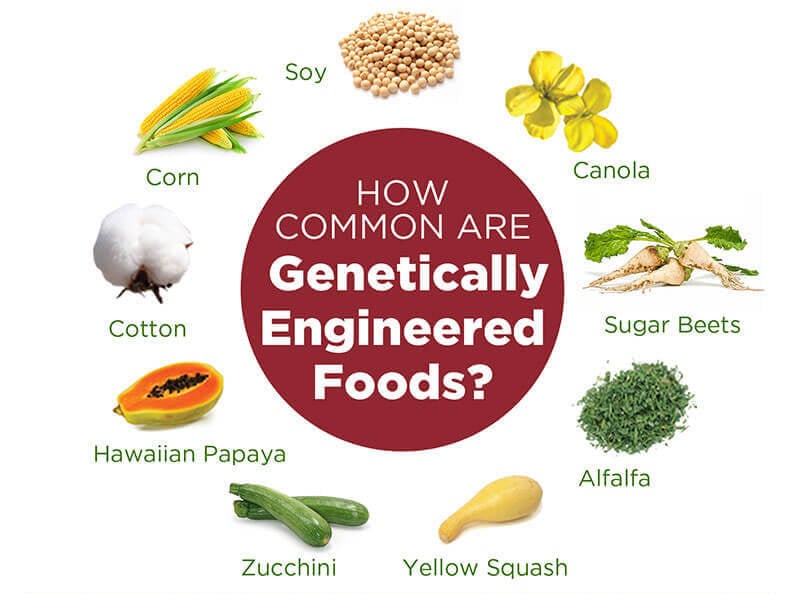Benefits of GMOs: A Comprehensive Analysis
In today’s world, the topic of genetically modified organisms (GMOs) is a subject of much debate and controversy. However, it is important to understand that GMOs offer numerous benefits that can positively impact various aspects of our lives. In this article, we will delve into the extensive advantages of GMOs, shedding light on their potential to revolutionize agriculture, improve nutrition, and contribute to sustainable development.
Enhanced Crop Yield
One of the key benefits of GMOs is their ability to enhance crop yield. Through genetic modifications, scientists can introduce traits into crops that make them more resistant to pests, diseases, and environmental stressors. This results in higher productivity and increased food production, which is crucial for meeting the growing global demand for food.
Improved Nutritional Content
GMOs also offer the potential to improve the nutritional content of crops. By introducing specific genes, scientists can enhance the levels of essential vitamins, minerals, and other nutrients in genetically modified crops. This has the potential to address widespread nutrient deficiencies and improve public health, particularly in developing countries where access to diverse and nutritious food is limited.
Reduced Environmental Impact
Another significant advantage of GMOs is their potential to reduce the environmental impact of agriculture. Genetically modified crops can be engineered to require fewer pesticides, herbicides, and fertilizers, thereby minimizing chemical usage and decreasing the release of harmful substances into the environment. Additionally, GMOs can be designed to be more drought-resistant, reducing water consumption in agricultural practices.
Enhanced Crop Quality
GMOs have the potential to improve crop quality by minimizing spoilage, increasing shelf life, and enhancing overall product characteristics. For example, genetically modified fruits and vegetables can be engineered to ripen more slowly, reducing post-harvest losses and extending their freshness. This not only benefits farmers and consumers but also reduces food waste, which is a significant global concern.
Increased Farming Efficiency
By incorporating genetic modifications, GMOs can contribute to increased farming efficiency. Crops can be engineered to be more resistant to extreme weather conditions, such as droughts or floods, ensuring better crop survival rates. Moreover, genetically modified seeds can be designed to have higher germination rates, reducing the need for replanting and saving valuable time and resources for farmers.
Support for Sustainable Agriculture
GMOs have the potential to play a crucial role in sustainable agriculture practices. By reducing the need for chemical inputs and improving crop resilience, genetically modified crops can help minimize soil erosion, conserve water resources, and protect biodiversity. These factors contribute to the overall sustainability of agricultural systems, ensuring long-term food security and environmental preservation.

In conclusion, the benefits of GMOs are extensive and cannot be overlooked. From enhanced crop yield and improved nutritional content to reduced environmental impact and increased farming efficiency, GMOs have the potential to address some of the most pressing challenges in agriculture and food production. By embracing the advancements in genetic engineering and promoting responsible use, we can unlock the full potential of GMOs and pave the way for a sustainable and prosperous future.
Frequently Asked Questions about the Benefits of GMOs
1. What are GMOs?
GMOs, or genetically modified organisms, are living organisms whose genetic material has been altered using genetic engineering techniques.
2. How do GMOs benefit agriculture?
GMOs can enhance crop yield, improve resistance to pests and diseases, and increase tolerance to environmental factors such as drought or extreme temperatures.
3. Are GMOs safe to eat?
Yes, extensive research has shown that GMOs are safe for consumption and have no negative impact on human health.
4. Do GMOs reduce the use of pesticides?
Yes, GMOs can reduce the need for chemical pesticides as they possess built-in resistance to certain pests, reducing the reliance on harmful chemicals.
5. Can GMOs help address world hunger?
Yes, GMOs have the potential to increase crop productivity, improve nutritional content, and enhance crop resilience, which can contribute to addressing food security challenges.
6. Do GMOs have any environmental benefits?
Yes, GMOs can help reduce soil erosion, conserve water resources, and lower greenhouse gas emissions by improving crop efficiency and reducing the need for land expansion.
7. Are GMOs regulated for safety?
Yes, GMOs are subject to strict regulations and safety assessments by government agencies to ensure they meet rigorous standards before being approved for commercial use.
8. Can GMOs help in medical research?
Yes, GMOs have been instrumental in producing medicines, vaccines, and other medical products, allowing for advancements in healthcare and disease treatments.
9. Are GMOs economically beneficial?
Yes, GMOs can lead to increased agricultural productivity, reduced production costs, and improved market competitiveness, which can benefit farmers and the overall economy.
10. Do GMOs have long-term effects on biodiversity?
Extensive studies have shown that GMOs have no significant negative impact on biodiversity and can help preserve it by reducing the need for land conversion and protecting natural habitats.




